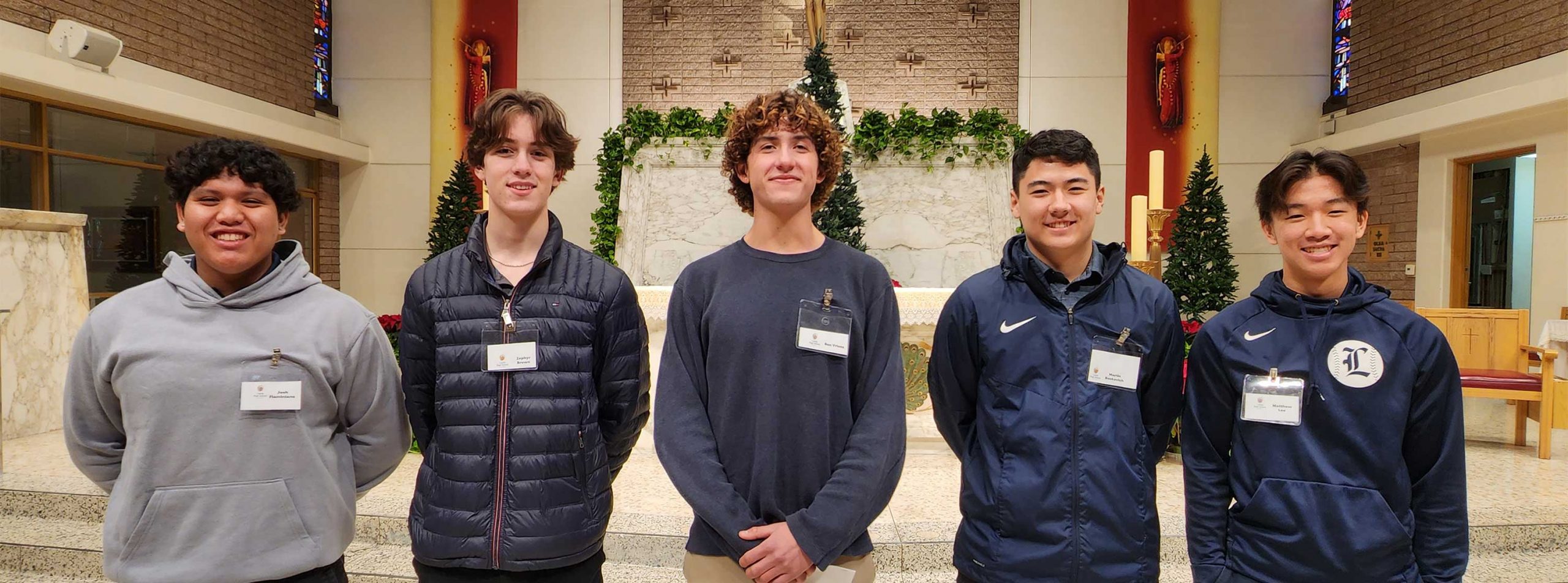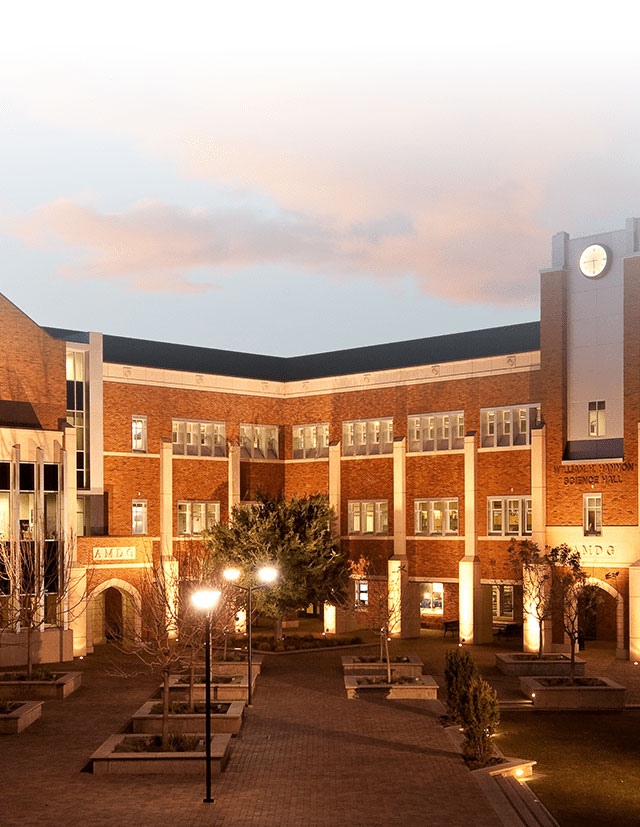Building Communities of Belonging Through Service and Justice
For over 40 years, the Senior Service Project has provided countless Cubs with the opportunity to truly answer Pope Francis’ call for us to venture out of our comfort zones to encounter those who are marginalized and our Universal Apostolic Preferences invite us to, “walk with the excluded.”
Since its inception, seniors have entered into this project with others resulting in a profound change in themselves. This project is more than a requirement; it is a call. It’s an invitation for seniors to immerse themselves in the life of a community, its people, their stories and their lived experiences. Such encounters require prolonged time in a community, along with the necessary training and skills. The Loyola community of faculty and staff are here to accompany each one of these seniors in reflecting on this experience and understanding it within the context of Service and Justice.
All seniors are required to attend the opening and closing ceremonies. (See school calendar for specific dates)
Expectations in Four Phases
As the final encounter of our CY programming, CY4 is designed to center on the Grad at Grad (ISO) value of Developing as a Leader, with its focus on the CY4 theme of compassion. Seniors will work with a Loyola team of CY4 facilitators through their Magis periods in a series of workshops and training activities on student community and civic engagement opportunities. In collaboration with our local community partner sites, there’s a goal of designing a final project as the experiential learning activity for all students using an Ignatian lens and advocacy framework–which allows students to drive action in an area of their choosing.
The senior expectation is divided into four phases:
- Participating in all training seminars and completing assigned pre/post work on the educational platform led by CY4 Facilitators.
- Participating in all in-person service at one of our partnering agencies, organizations or schools during the first weeks of the spring semester.
- Participating in all reflection sessions with their assigned adult facilitators.
- Completing the final capstone project which will be developed through the Spring semester CY4 sessions.
The CY4 team is here to help you and your family navigate through the Senior Service and Justice Project to fulfill your graduation expectations. Please continue to visit Canvas often and, when applicable, open messages sent from the Center for Service and Justice.
Setting Up an Account on MobileServe
All programs and projects related to your Service and Justice experience at Loyola High School must be recorded and submitted on MobileServe. Instructions regarding account registration will be posted in the Senior Project Canvas page.
Senior Project Capstone
The Senior Project Capstone consists of four assignments which will be completed either during the weeks of Senior Project or through the Spring CY4 sessions.
1. Site Interviews
2. Research for Change Report
3. Reflection: How Can You Be the Change the World Needs to See?
4. Mission Statement
All assignments must be completed in order for a Senior to receive credit for his Senior Project. Instructions will be provided in the Senior Project Canvas page as well as in CY4 sessions.
FAQs for Senior Service and Justice Project
When does the project begin?
The project usually begins on the first Monday of the spring semester with an in-person training, review of expectations, and opening ceremony. (Some seniors may be required to attend their site orientations after the initial session. Those who do not have orientation will be dismissed for the remainder of the day)
When does direct service begin?
Direct service will begin the first Monday of January immediately following the final orientation and it will end on the Thursday before the January Winter Break. All seniors are required to attend the opening and closing ceremonies. (See school calendar for specific dates)
How do seniors select their work sites?
Seniors are asked to meet with the Center for Service and Justice Director and/or Program Coordinator to select a site only from our database of confirmed and pre-approved partnering organizations, agencies and schools. Priority will be given to seniors who have completed all prior grade level Service and Justice requirements. (Students may select a site based on interest, location and other factors.)
What are reflection meetings?
Each senior will be assigned a faculty/staff reflection leader, who will facilitate small group meetings throughout the duration of the Senior Project. This is an opportunity for seniors to hear from their peers about their different experiences in the project.
Are reflection meetings required?
Seniors are required to attend ALL reflection meetings scheduled by their small group leader. If a senior cannot attend a meeting, he must communicate with his reflection leader as soon as possible.
What training will seniors receive before the Senior Project?
Seniors who are 18 years old and serving in a Tk-8 Catholic Grade School will be required to be VIRTUS trained–VIRTUS is the mandatory training sponsored by the Los Angeles Archdiocese. It is a series of modules and discussions on working with minors. Training will be provided on campus and at the conclusion of the training students will receive a certificate recognizing their completion of the program. Seniors under the age of 18 will receive a modified workshop on working with minors. (Most non-Catholic grade school sites have their own training through formal orientations or site specific forms.)
What is the expected student attire for the Senior Project?
Unless otherwise stated by the project site, the attire for each day should be a polo shirt (preferably a Loyola polo, but any polo that adheres to the Loyola student dress code is allowed).
May Seniors take time off of the Senior Project for a college visit or family vacation?
No. This has been a long standing rule. We require all students to commit to the full timeline of the Senior Project.
What is the Final Project?
To culminate the Senior Project experience, seniors will submit a final capstone assignment (formats may vary), which summarizes and reflects their experience throughout the program.






